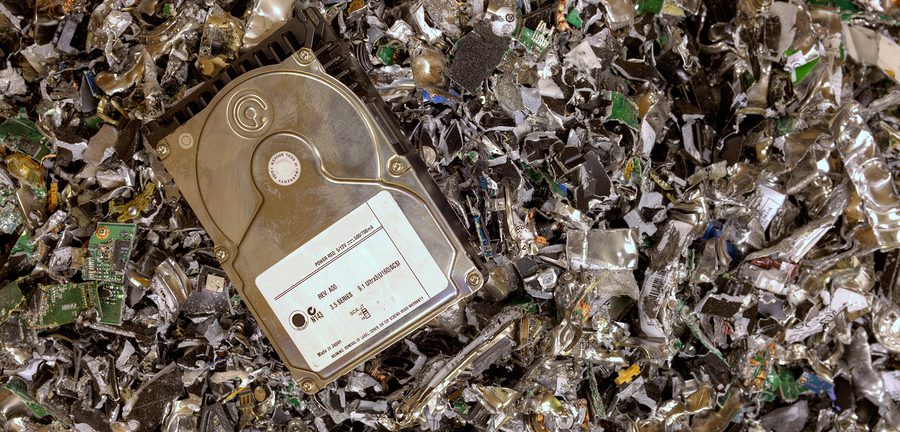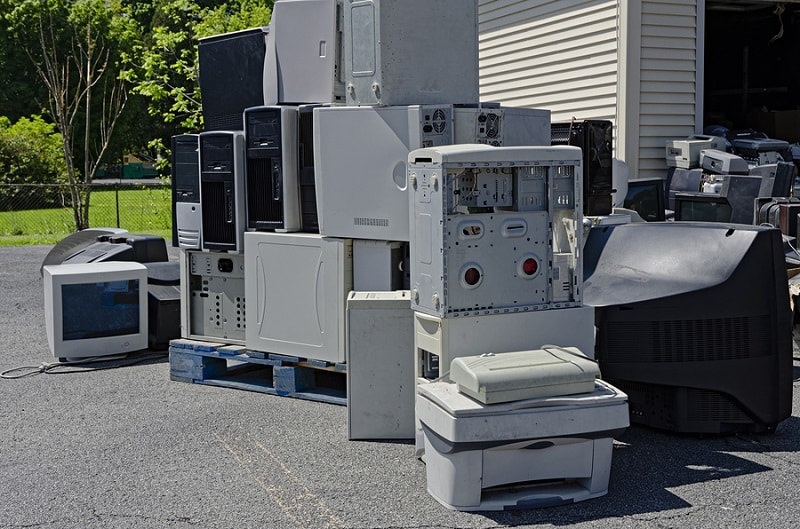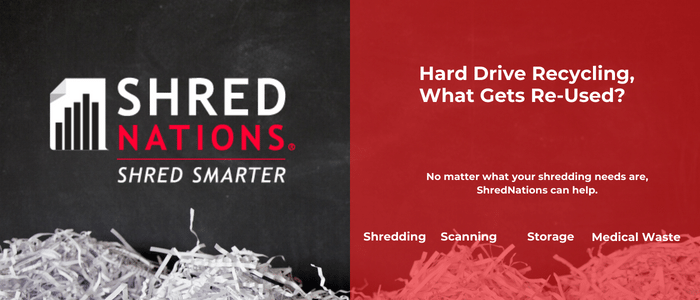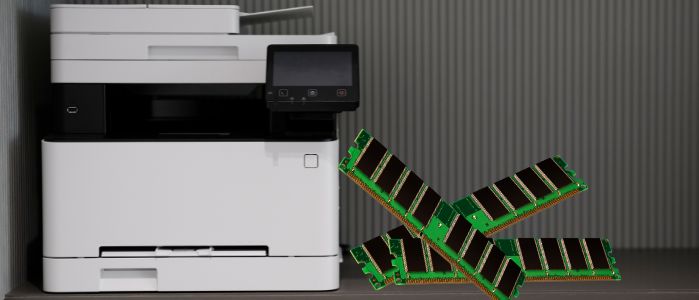
The dangers of personal and business identity thefts are higher than ever before. With just a few pieces of your personal information, which your hard drive likely contains, a cyber criminal can wreak havoc. To prevent this from happening, make sure to perform proper hard drive disposal on any old technology that contains one.
Several types of technologies use hard drives for storage, but the most common are laptops and desktop computers. Check out our video on secure hard drive disposal to learn more about the process, and why it’s important.
Video Transcription
Why Hard Drive Disposal Remains Important
Hard drives hold enough information to be a buried treasure chest for identity thieves and fraudsters. They’re a repository for everything saved and accessible on a computer, from passwords, to bank statements, to social security numbers, and more. If it’s a business hard drive, it also likely contains sensitive information on business operations and personnel.
Whether it’s your personal or business computer, it’s incredibly important to make sure you secure proper hard drive disposal. Whether that be hard drive shredding, degaussing, or wiping, you need to make sure it happens.
 The Risk of Legal Liability
The Risk of Legal Liability
For companies, there’s an added risk of legal liability. When a company’s sensitive information is stolen or breached, laws often require companies to notify all people affected—making the risks of crippling your PR efforts just one reason to dispose of electronics properly.
In 2010 when health plan provider Affinity Health didn’t destroy their hard drives full of PHI in the company fax machines, they had to learn the hard way with a $1.2 million fine. More recently, Morgan Stanley was forced to pay a $35 million fine for improper disposal of hard drives that contained customer information.
Hard Drive Destruction Laws
Hard drive management and destruction is regulated by numerous laws. In healthcare, HIPAA compliance is especially important—particularly for how pricey penalties can get.
Here’s a list of common federal laws that apply for hard drive disposal:
Paying the Price for Poor Hard Drive Disposal Practices
For an example of the cost of neglecting hard drive shredding before disposing, just take a look at HIPAA’s current noncompliance penalties:
| Violations Prior to 2/18/2009 | Violations After 2/18/2009 | |
| Penalty Amount | Up to $100 per violation | $100-$50,000 (or more) per violation |
| Calendar Year Cap | $25,000 | $1,500,000 |
Types of Electronics to Shred
A wide range of electronics and media store PII and other sensitive information, including:
-
- All solid-state, rotational, and magnetic hard drives
- Hard drives in office equipment such as computers, scanners, photocopiers, fax machines, etc.
- Optical media such as CDs and DVDs
- RAM and ROM-based storage
- Mobile phones, tablets, laptops, and PDAs
- Biomedical devices like infusion pumps, MRI and CT machines, ventilators, and diagnostic ultrasound devices
- Legacy media including floppy disks, zip disks, or magnetic tapes
Hard Drive Disposal Methods
| Wiping | Degauss | Shred & Destroy |
| One option that quickly comes to mind is simply wiping a hard drive clean.
Modern wiping technology, through the Secure Erase or DoD is effective, but it requires IT expertise to be done properly. |
Degaussing involves using magnets to create an electromagnetic field to disrupt the magnetic domains on the drive.
While the data becomes unreadable when exposed, buying the machinery is often quite expensive. |
Otherwise known as absolute destruction, physical hard drive shredding reduces electronics to small pieces.
Using industrial shredders, the leftover fragments can’t be reassembled—ensuring information remains securely disposed. |
Destroy vs Degauss: Reasons to Shred
While degaussing hard drives is often seen as a surefire strategy for removing data from hard drives, it does have some downsides that can cause issues for large or time sensitive hard drive disposal projects.
| Cost | Capability |
| For even an NSA-approved manual hard drive degausser, machines cost roughly $500.
Manual degaussing is time-consuming (time = money), and although automatic degaussers are available, they can cost upwards of tens of thousands of dollars. |
Not all degaussers are equal. To erase data, the magnetic field produced by degaussers must be 2-3 times the strength of a hard drive’s field.
With better technology now boosting the magnetic strength of hard drives today, commercial degaussers become more expensive to keep up with. |
Certificates of Destruction Post-Disposal
Certificates of destruction provide protection from liability and proof that the hard drive shredding and destruction services comply with all applicable laws, including details such as:
-
- Date accepted by the destruction provider
- Date (or date range) of possession
- Terms and conditions of service agreements
- Destruction witnesses
- Authorized destruction orders
- Devices and content descriptions
- Chain of custody for materials
- Location of destruction
- Serialized service transaction numbers
 How Electronic Destruction & Disposal Work
How Electronic Destruction & Disposal Work
You can choose whether you want your hard drives shredded by us coming to you, you dropping them off, or having them picked up.
Electronics are run through industrial shredders where they’re reduced to pieces that cannot be reconstructed.
You receive a certificate of destruction, and to comply with EPA and state hazardous waste laws. All raw materials are recycled.
Need Hard Drive Destruction? Call Shred Nations Today
Have your hard drives and electronic hardware safely and thoroughly shredded through one of your local shredding professionals. Shred Nations works to find the best prices on high-quality destruction services when and where you need them.
To get free, no-obligation quotes in just minutes, give us a call at (800) 747-3365 or fill out the form on the right.






 The Risk of Legal Liability
The Risk of Legal Liability How Electronic Destruction & Disposal Work
How Electronic Destruction & Disposal Work





